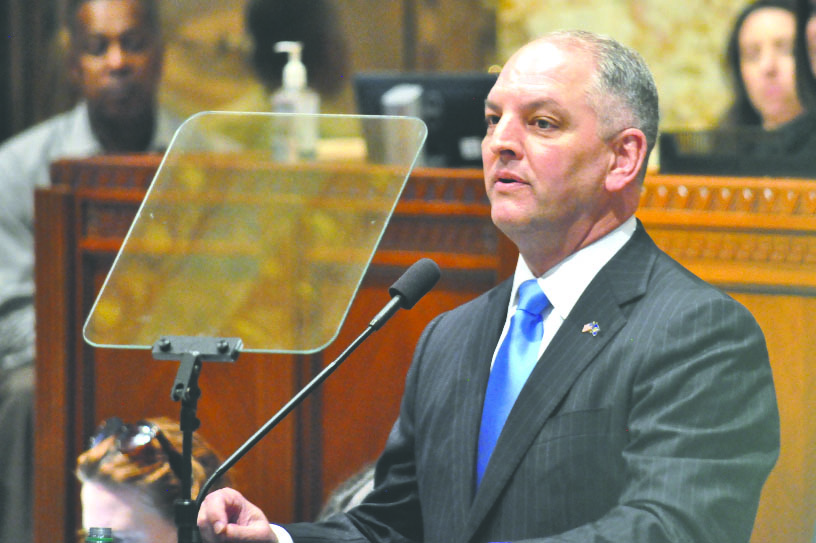(The Center Square) – Louisiana Gov. John Bel Edwards has acted on every bill passed during June’s special session, including approving a long list of tax breaks and subsidies and measures meant to promote access to high-speed internet.
House Bill 69 by Rep. Daryl Deshotel provides a tax rebate on fiber-optic cable for companies that win bids in the federal government’s $20 billion Rural Digital Opportunity Fund auction, meant to promote internet access in currently unserved areas. Senate Bill 10 by Sen. Beth Mizell calls for electricity cooperatives to partner with broadband providers using the co-op’s existing infrastructure.
Taken together, the two measures are meant to help Louisiana compete for a healthy share of the federal funding, hopefully leading to high-speed internet access in areas of the state that don’t currently have it.
Edwards also signed House Bill 64 to impose an 8 percent tax on the revenue produced by online fantasy sports contests. Setting the tax rate is the last step toward finally legalizing the practice in parishes where voters approved it back in 2018.
And the Democratic governor approved numerous Republican-backed tax breaks sought by business lobbyists, despite voicing concerns during the session about the impact on state finances. Proponents said the measures would help to boost businesses harmed by restrictions meant to control the spread of COVID-19, while critics said they would chip away at the state’s bottom line without actually providing any real economic benefit.
Legislative fiscal office notes indicate the various tax breaks could cost the state well over $200 million in lost revenue over the next five years, though the bills’ sponsors often argued the fiscal notes didn’t take into account the increased business activity (and therefore increased tax collections) they claimed the bills would stimulate.
Tax breaks, benefits and subsidies the governor signed this week include:
Senate Bill 4: Extends the sunset of the state’s research and development tax break, which would have expired next year, to 2025.
Senate Bill 5: Eliminates state taxes on up to $5 million of a casino’s “promotional play wagers,” which essentially are vouchers sent to potential customers to drum up business. Supporters said the promotions aren’t taxed in other states and could lead to more revenue for the state by bringing more patrons into the state’s heavily taxed casinos.
Senate Bill 6: Suspends corporate franchise taxes on the first $300,000 of taxable capital for businesses with $1 million or less in taxable assets.
Senate Bill 17: Extends the “angel investor” tax credit program, which was set to expire next year, into 2023. Edwards also signed Senate Bill 24, which boosts the credit’s value for investments in federally designated low-income “opportunity zones.”
House Bill 4: Extends the state’s tax credit program for rehabilitating historic structures and sets a $125 million annual cap on the amount of credits taxpayers can claim.
House Bill 11: Boosts the amount of sales tax collected a business is allowed to keep from 0.935 percent to 1.05 percent, while reducing the total amount a business can keep each month from $1,500 to $1,200.
House Bill 13: Allows retailers, hotels and restaurants with up to 50 employees to participate in the state’s Enterprise Zone tax credit program. The stated goal is to help companies impacted by COVID-19, though previous studies have shown that granting tax credits to those business categories provides a poor return on investment for taxpayers. House Bill 19 allows those same types of businesses participate in the state’s Quality Jobs program.
House Bill 37: Waives penalties and interest for late filing by taxpayers affected by COVID-19.





